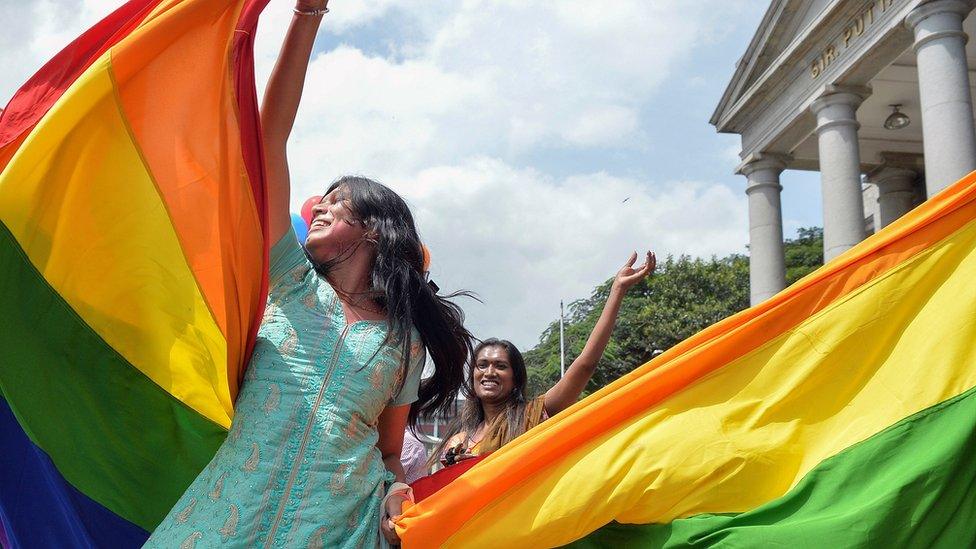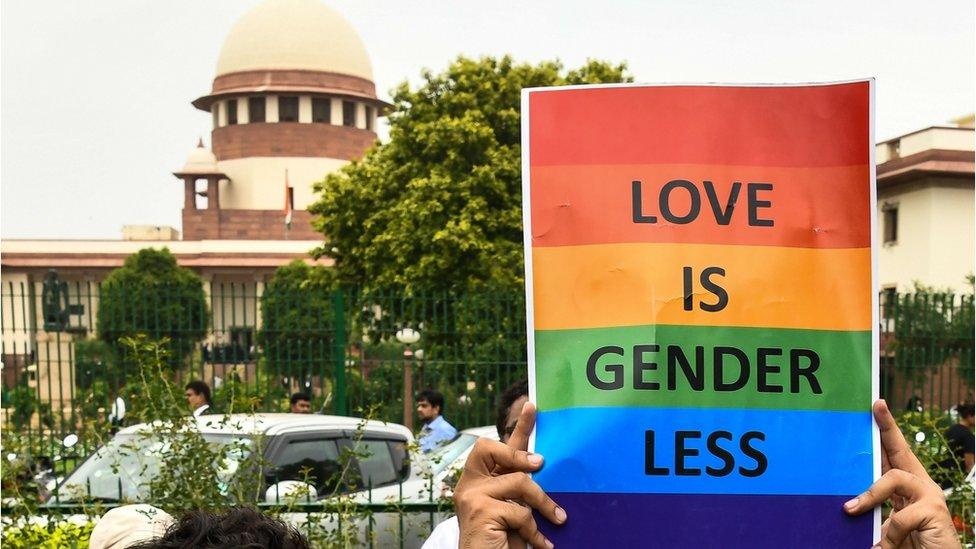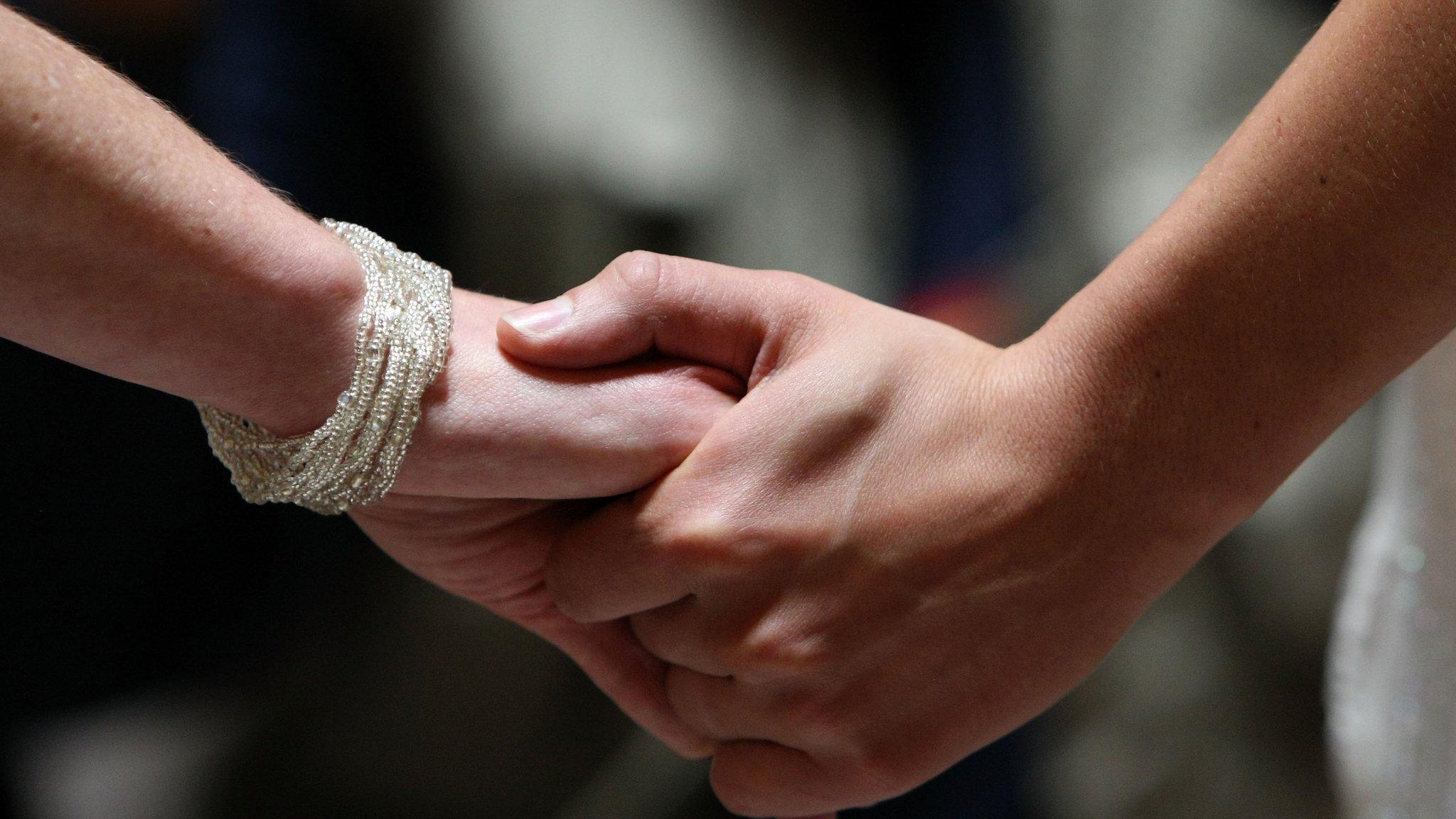India court rules lesbian couple can live together
- Published

India's Supreme Court struck down a law criminalising homosexuality earlier in September
A court in India's southern state of Kerala has ruled in favour of a lesbian couple who want to live together.
S Sreeja, 40, petitioned the high court alleging her partner Aruna, 24, had been forcibly detained by her family.
The court heard that she and Aruna had been in a relationship for two years. They started living together in August.
This is thought to be the first verdict of its kind since the Supreme Court decriminalised homosexuality earlier this month in a historic judgment.
In her petition, Ms Sreeja said Ms Aruna had been taken away by the police, a day after moving in with her in Kollam district, about 40km (25 miles) north of the state capital, Thiruvananthapuram.
She alleged that the police had responded to a complaint by Ms Aruna's mother saying she was missing. She said Ms Aruna's family took her away again after a local magistrate hearing the missing person's case had set her free.
"The court set her free on 14 August. But the minute she came out of the court, she and her partner were manhandled and the younger woman was taken away," Preetah KK, Ms Sreeja's lawyer, told BBC Hindi's Imran Qureshi.
"They admitted her to a mental institution in Thiruvananthapuram."

The movement for LGBT rights has been most spirited in India's biggest cities.
After Ms Sreeja filed the petition, the high court summoned her partner. Ms Aruna told the court that she wished to live with the petitioner, leading the court to rule in favour of the couple, Ms Preetah said.
She added that the ruling was possible because the Supreme Court had recently struck down section 377 of India's penal code, a colonial-era law criminalising homosexuality.
"She [Ms Aruna] said that she wanted to go with the petitioner. Based on the Supreme Court verdict, she was allowed to go with the petitioner."
India is still a largely conservative country and the movement for LGBT rights has been most visible in India's biggest cities.
Despite the landmark Supreme Court verdict, many people in the country remain opposed to same-sex relationships.
- Published6 September 2018

- Published3 April 2019
